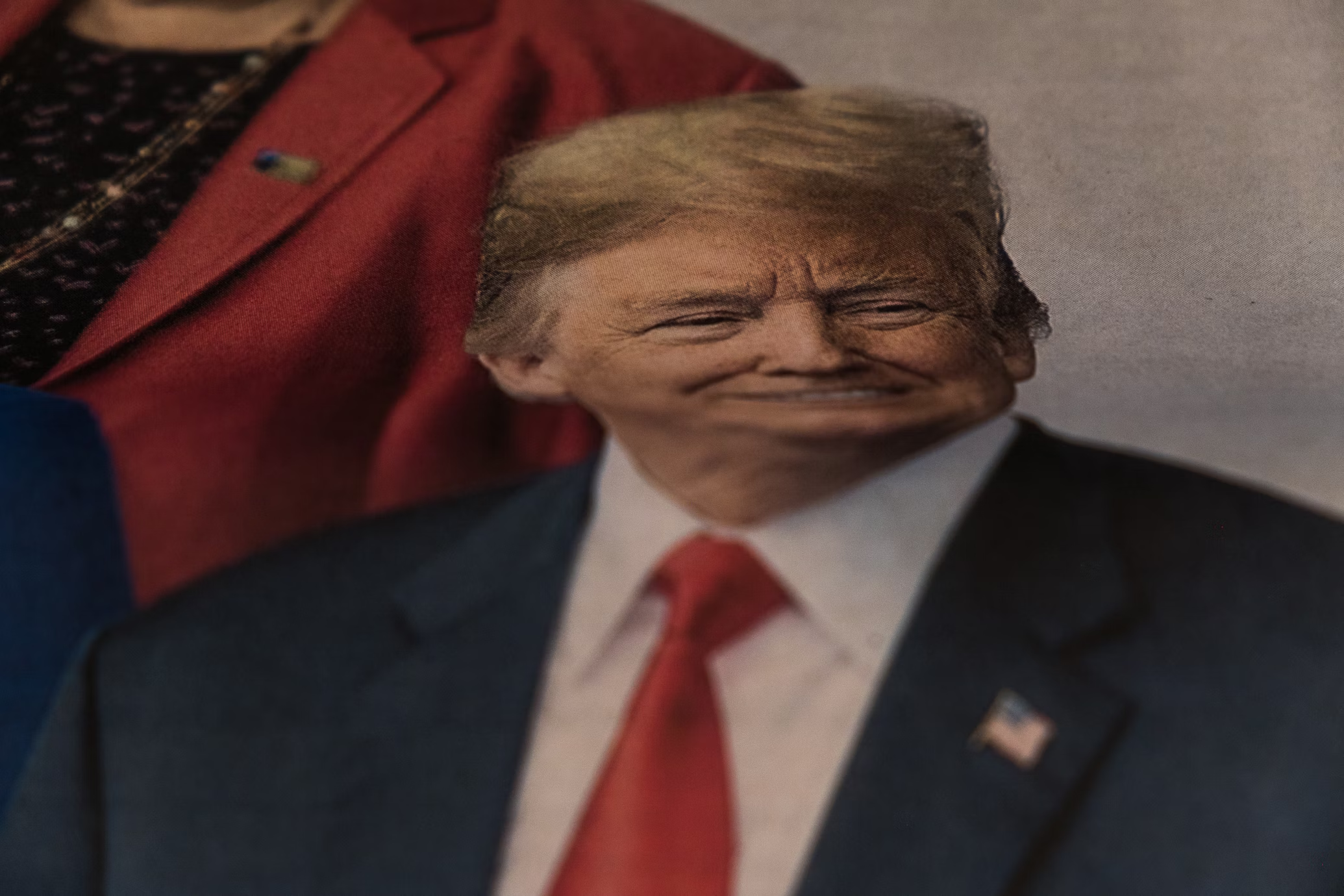Science Under Siege: How Trump’s Second Term Could Change Everything

Donald Trump’s return to the White House has triggered significant debates, particularly in the realms of science, education, and health. His policies from the first presidency were often criticized for undermining scientific research, healthcare access, and environmental protections. Now, as he embarks on his second term, there are renewed concerns about the future of American science and public health.
Current Actions in Science and Health
Since reclaiming office, President Trump has taken several steps that have sparked controversy in the scientific and medical communities:
Funding Cuts to Key Agencies
Trump’s administration has proposed significant reductions in the budgets of the National Science Foundation (NSF) and National Institutes of Health (NIH). The NIH, which has been at the forefront of medical research for decades, faces an uncertain future as major projects in cancer, Alzheimer’s research, and vaccine development see funding disruptions. Scores of researchers have felt the impact of the Trump administration’s push to cut federal spending and realign programs with its priorities. The Environmental Protection Agency (EPA) is also under pressure, with reduced resources affecting climate monitoring and pollution control efforts.
Anti-Regulation Policies
Trump has reinstated policies that roll back regulations on industries, particularly those affecting environmental and public health protections. His administration is staunchly anti-regulation, with the President even personally lauding companies that have fought lawsuits brought by their regulators.
His stance on deregulating pharmaceutical industries has raised concerns about the safety and efficacy of new drugs entering the market with limited oversight.
Undermining Public Health Institutions
Trump’s past attacks on the CDC and the Food and Drug Administration (FDA) have persisted, with ongoing efforts to limit their authority in shaping public health policies—particularly in vaccination programs and infectious disease control.
Robert F. Kennedy Jr., who serves as the 26th United States Secretary of Health and Human Services under Trump, is a well-known critic of vaccines, frequently claiming links to various health issues despite overwhelming scientific evidence confirming their safety and effectiveness. Although Kennedy has been critical of Trump in the past, their views on public health align significantly, especially in their shared skepticism toward agencies like the CDC and the World Health Organization (WHO). His appointment as the nation’s top health official could further weaken public confidence in science-based health policies, exacerbating misinformation and undermining institutional credibility at a critical time for public health.
Related: The Battle Ahead: Science vs. RFK Jr.
Environmental Uncertainty Under Trump’s Return
During his first term, President Trump rolled back over 100 environmental regulations using the Environmental Protection Agency (EPA). Many of these rollbacks were later reversed by President Biden, restoring critical protections. Now, with Trump back in power, uncertainty looms over the future of environmental policies. Many fear that he will take even more aggressive steps to weaken public institutions and regulatory agencies. His administration has historically favored deregulation, often prioritizing industry interests over environmental safeguards. Experts warn that another wave of rollbacks could have lasting consequences for climate policies and public health.
Trump’s Second-Term Agenda on Science and Health
Trump’s policy plans, often driven by political motivations rather than scientific consensus, pose significant concerns for the future of American innovation and healthcare:
Weakened Climate Science Initiatives
His administration has once again distanced itself from international climate commitments. Federal funding for climate research is under threat, and agencies responsible for tracking climate change data face budget reductions. This has led to concerns that the U.S. will fall behind in renewable energy advancements, ceding ground to China and Europe.
Education and STEM Funding Cuts
Serious discussions are underway about cutting federal grants that fund science, technology, engineering, and math (STEM) education programs. Reduced federal support could make it harder for universities to sustain world-class research facilities, threatening the nation’s standing in scientific innovation. Students may face fewer opportunities to join prestigious research centers, as Trump has already threatened budget cuts to key organizations like the National Science Foundation (NSF), which funds many of these programs. If implemented, these cuts could stifle advancements in critical fields, limit innovation, and push aspiring researchers to seek opportunities abroad.
Healthcare Overhaul and Public Health Risks
Trump has repeatedly vowed to dismantle the Affordable Care Act (ACA) without offering a clear replacement, leaving millions of Americans uncertain about their healthcare access. His second term may bring further privatization of healthcare services, limiting access for low-income citizens.
The Historical Role of Science in U.S. Policy
The U.S. has historically been a global leader in scientific and technological advancements, largely due to its strong institutional support for research:
Vannevar Bush, a key scientific adviser during World War II, laid the groundwork for the modern scientific funding system, advocating for government-backed research that led to breakthroughs in medicine, computing, and defense.
Roosevelt’s policies helped establish institutions like the NSF and NIH, ensuring that science played a central role in national development. The Apollo program, which landed humans on the moon, was a direct result of this long-term commitment to scientific exploration.
President John F. Kennedy championed science and technology as pillars of national progress, most notably through his commitment to the space race. His administration’s investment in NASA led to the Apollo program, inspiring innovation and strengthening U.S. leadership in space exploration.
Kennedy also prioritized medical research, supporting advancements in public health and disease prevention. Unfortunately, his nephew, Robert F. Kennedy Jr., seems more interested in launching conspiracy theories than moon missions.
Compared to past presidents, Trump’s approach to science is marked by skepticism and hostility toward experts, weakening the long-standing tradition of science-driven policy.
Dangers and Implications of Trump’s Policies
The second Trump presidency could have dire consequences for scientific progress and public health. Funding cuts and policy shifts could discourage young scientists from pursuing research in the U.S., leading to a talent drain where top researchers seek opportunities in Europe or Asia.
Efforts to limit vaccine mandates and reduce funding for disease control could leave the country vulnerable to future pandemics. The rollback of environmental protections also means an increased risk of pollution-related diseases.
Trump’s rhetoric often challenges scientific consensus, leading to increased misinformation about climate change, vaccines, and medical treatments. This could have long-term effects on public perception and policy-making.
Recommended for you: Paris Agreement Without the U.S.: Can the World Still Meet Its Climate Goals?
Scientific Contributions of the U.S. and Their Global Impact
Despite the challenges, the U.S. has been responsible for some of the most important scientific discoveries and innovations:
The U.S. has led the way in developing treatments for diseases like cancer, diabetes, and HIV/AIDS. The rapid development of COVID-19 vaccines during the pandemic showcased the strength of American research institutions.
The internet, artificial intelligence, and space exploration have all been driven by American innovation. Companies like NASA, Microsoft, and Google continue to push technological boundaries.
Prior to Trump’s rollback of environmental policies, the U.S. played a key role in global climate research, contributing to understanding and combating global warming.
China’s Role as an Emerging Scientific Power
As the U.S. debates its future in science, China has aggressively expanded its research and technological capabilities. China now outspends the U.S. in certain areas of research and development, particularly in artificial intelligence, renewable energy, and space exploration. It has formed partnerships with European and Asian countries to advance scientific collaboration, taking advantage of the U.S.’s retreat from international agreements. With continued investment in education and infrastructure, China is poised to challenge the U.S. as the dominant global scientific power in the coming decades.
A Critical Crossroads for American Science
The direction of American science, education, and health policy under Trump’s second term will have profound implications for the country’s future. While the U.S. has historically been a leader in scientific innovation, recent policies threaten to erode this advantage. If research funding continues to decline and scientific expertise is sidelined in favor of political interests, the nation risks falling behind not just in technology and healthcare, but in its ability to address the critical challenges of the 21st century. Meanwhile, China’s steady ascent as a global scientific powerhouse underscores the urgent need for the U.S. to reassess its priorities and reinvest in science-driven policies to remain competitive on the world stage.






